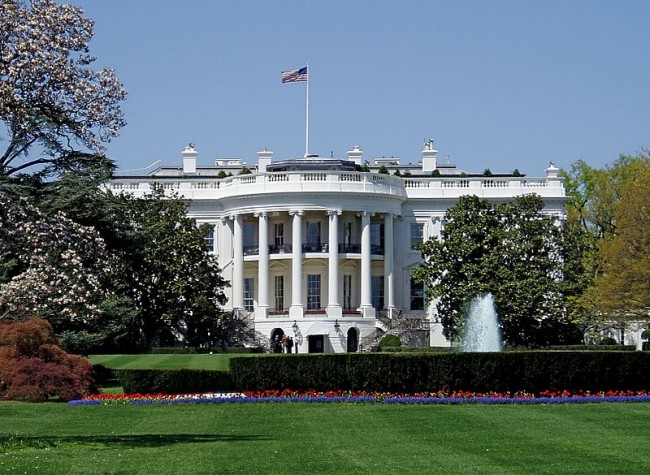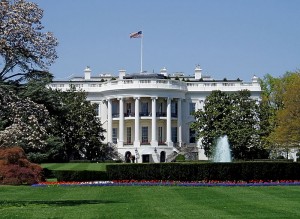
 The parliament of Crimea, the Ukrainian autonomous region under Russian military control, voted in favor of leaving Ukraine for Russia. The lawmakers set a referendum date giving the residents of the peninsula 10 days to think about their fate.
The parliament of Crimea, the Ukrainian autonomous region under Russian military control, voted in favor of leaving Ukraine for Russia. The lawmakers set a referendum date giving the residents of the peninsula 10 days to think about their fate.
The residents will have to decide whether to remain in Ukraine or join Russia. Considering Crimea is home to a large Russian minority (60% of the population), it is not difficult to conclude how the referendum will end. Russians on the peninsula think Crimea under Ukraine is a result of a historical error, committed by Soviet leader Nikita Khruschev in 1954 who transferred the peninsula to Ukrainian SSR. They sincerely believe Crimea has to go back under Russian control.
The Crimean Tatars who make up about 12% of the residents on the peninsula and who had been subject to forceful deportations and relocation by the Stalin’s brutal policies, maintain that if anything, they are the original inhabitants of the peninsula even long before the Russians appeared there. Russians in Crimea are believed to have arrived after the Russian conquests some 200 years ago. Crimean Tatars despise the move by Russia and have expressed their support for the territorial integrity of Ukraine.
It’s easy to predict at this stage how the referendum will turn out with Russians in majority of votes, but it’s hard to foresee what the reaction from Ukraine and the international community will be. Holding a referendum for a straightforward annexation of the territory of a neighboring state is a rather bold move by Moscow. Previously, Kremlin sponsored such motions only via its proxies. South Ossetia, Abkhazia, Trandniestr, and indirectly Nagorno-Karabakh, are good examples of Moscow’s invisible hand. Crimea is a new precedent Putin sets. Obviously for reasons which we will discover in the near future. Perhaps, annexation of eastern Ukrainian provinces or threats to do so if Ukrainian government does not comply with Russian policies in the region.
The White House reacted with a statement. The statement reads:
“As President Obama has made clear, the United States is pursuing and reviewing a wide range of options in response to Russia’s ongoing violation of Ukraine’s sovereignty and territorial integrity – actions that constitute a threat to peace and security and a breach of international law, including Russia’s obligations under the UN Charter and of its 1997 military basing agreement with Ukraine, and that are inconsistent with the 1994 Budapest Memorandum and the Helsinki Final Act.
Pursuant to the President’s guidance, today the State Department is putting in place visa restrictions on a number of officials and individuals, reflecting a policy decision to deny visas to those responsible for or complicit in threatening the sovereignty and territorial integrity of Ukraine. This new step stands in addition to the policy already implemented to deny visas to those involved in human rights abuses related to political oppression in Ukraine.
In addition, the President has signed an Executive Order that authorizes sanctions on individuals and entities responsible for activities undermining democratic processes or institutions in Ukraine; threatening the peace, security, stability, sovereignty, or territorial integrity of Ukraine; contributing to the misappropriation of state assets of Ukraine; or purporting to assert governmental authority over any part of Ukraine without authorization from the Ukrainian government in Kyiv. This E.O. is a flexible tool that will allow us to sanction those who are most directly involved in destabilizing Ukraine, including the military intervention in Crimea, and does not preclude further steps should the situation deteriorate.
These actions build upon the previous actions the United States has taken, including suspending bilateral discussions with Russia on trade and investment; suspending other bilateral meetings on a case-by-case basis; putting on hold U.S.-Russia military-to-military engagement, including exercises, bilateral meetings, port visits, and planning conferences; and our agreement with G-7 nations to suspend for the time being our participation in activities associated with the preparation of the scheduled G-8 Summit in Sochi in June. Depending on how the situation develops, the United States is prepared to consider additional steps and sanctions as necessary.
At the same time, as the President has said, we seek to work with all parties to achieve a diplomatic solution that de-escalates the situation and restores Ukraine’s sovereignty. We call on Russia to take the opportunity before it to resolve this crisis through direct and immediate dialogue with the Government of Ukraine, the immediate pull-back of Russia’s military forces to their bases, the restoration of Ukraine’s territorial integrity, and support for the urgent deployment of international observers and human rights monitors who can assure that the rights of all Ukrainians are protected, including ethnic Russians, and who can support the Ukrainian government’s efforts to hold a free and fair election on May 25.
As we follow developments in Ukraine closely, the United States reaffirms its unwavering commitment to our collective defense commitments under the North Atlantic Treaty. We will continue to pursue measures that reinforce those commitments, to include the provision of additional support to NATO’s Baltic Air Policing mission and our aviation detachment in Poland.”




